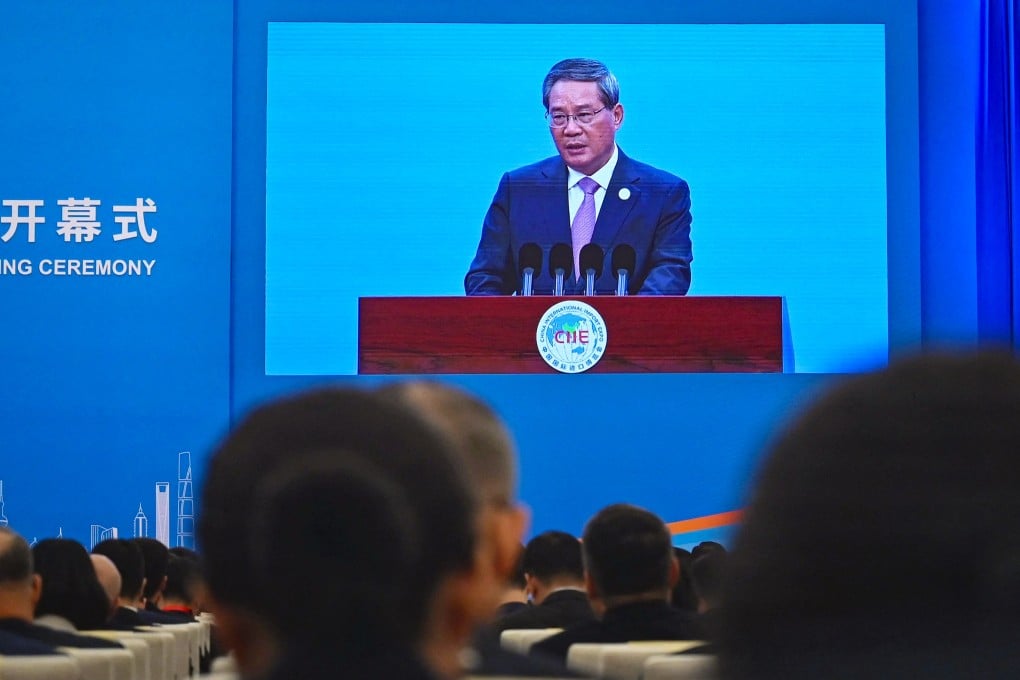China’s Premier Li Qiang vows wider opening to play stabilising role in global economy
At the China International Import Expo (CIIE), Li highlights the importance of opening up its market to trading partners

“China will further open up its supersized market and take strong measures to share opportunities with other countries,” he said. “We have the ability to drive the growth of our economy. China is making contributions [to the global economy] in its own way.”
Li’s speech comes as China grapples with a flagging economy. During the last quarter, the Chinese economy grew at an annual pace of 4.6 per cent, the slowest since mid-2023. Gross domestic product rose by 4.8 per cent in the January-September period, trailing the official target of around 5 per cent.

Li said on Tuesday that China has ample room to roll out more stimulus measures. “We are still able to launch bigger-sized fiscal stimulus policies to combat the cyclical slowdown,” he said. “We also have the flexibility to adjust our monetary policies.”